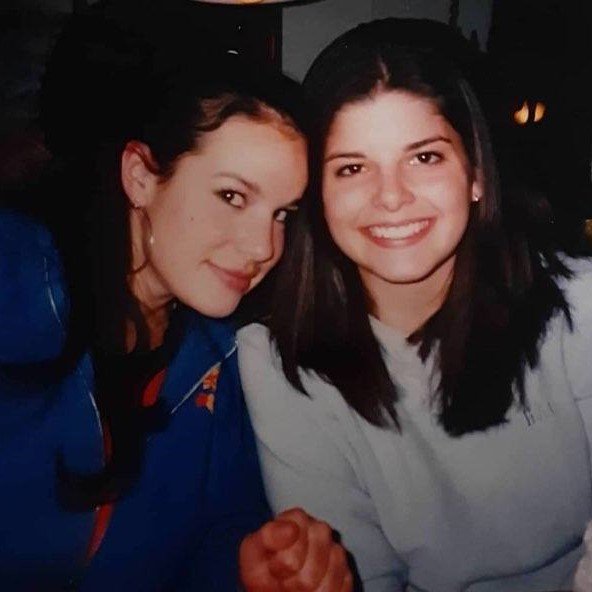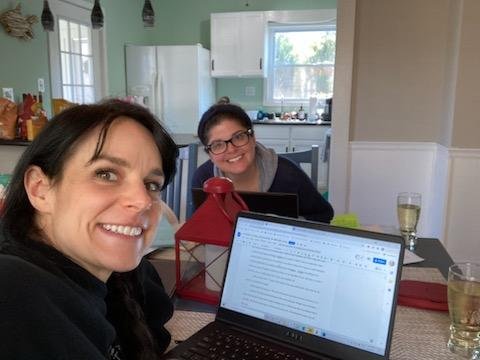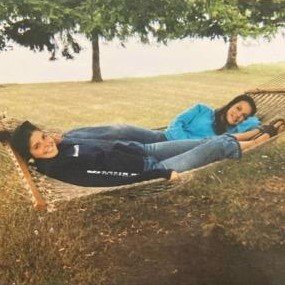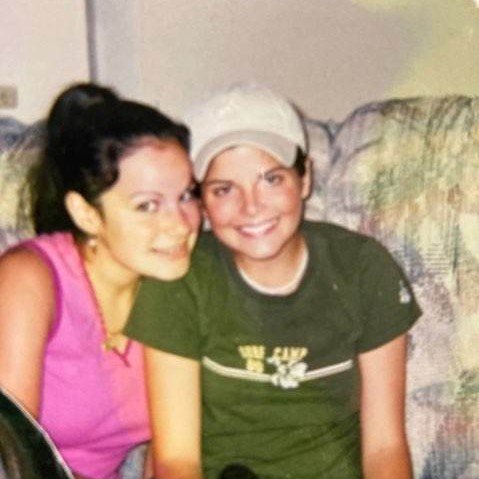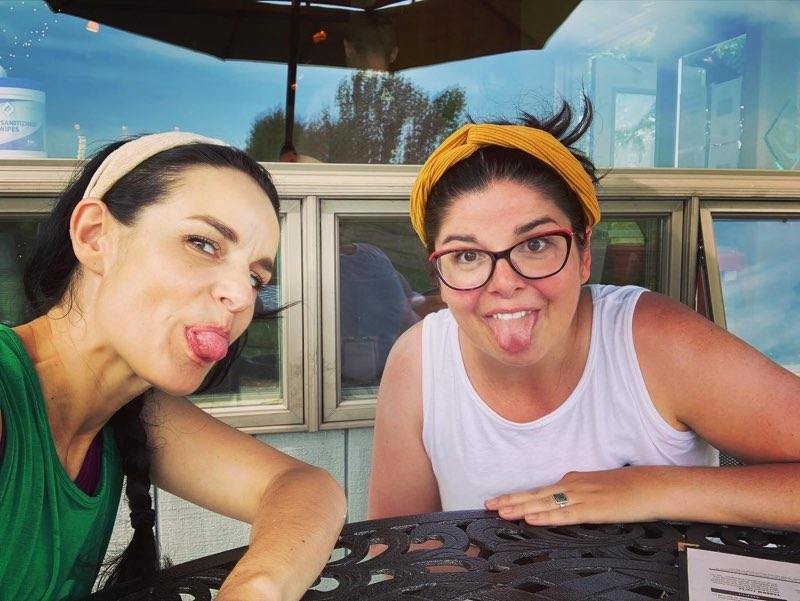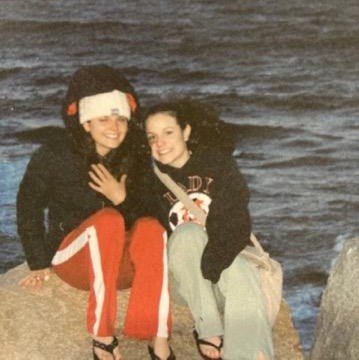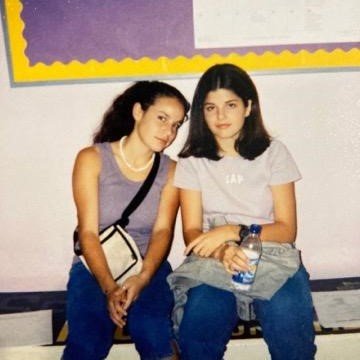All professional photography provided by Scarlett Piedmonte
A. D. Rhine is the pseudonym of Ashlee Cowles and Danielle Stinson. The authors are united by their military “brat” upbringing, childhood friendship spanning two decades, and love of classical literature. Ashlee holds graduate degrees in medieval history from the University of St. Andrews and theological studies from Duke University. Danielle holds a master of arts in law and diplomacy from Tufts University. Their adult debut Horses of Fire & Daughters of Bronze, an epic duology of the Trojan War, is the story they have always dreamt of writing together.
Join our book club for more untold stories, monthly book giveaways, and updates on new releases!
Our Story (The Longer Version)
It’s the summer of 2001 on the eve of our senior year of high school. On our last night living on a U.S. Army post in Germany, we’ve snuck out of the military guesthouse to meet on a fire escape, where we’ll do what we’ve done our entire childhoods—say tearful goodbyes to friends who have become “found family”—as we prepare to move yet again. On that rickety fire escape, we make a vow of undying friendship like only seventeen-year-olds can. We surely sense the shimmering possibilities of the future. A future that will somehow, we know, unfold together.
Horses of Fire & Daughters of Bronze grew out of the promises made on that fire escape. This story is rooted in a two-decades long friendship, forged in the fires of a military childhood, where the threat of war was ever-present. In the timeless epic of Hector and Achilles, we heard the echoes of warriors we knew and loved. Yet even as the daughters of soldiers who pressed the classics into our hands, we felt more drawn to the lines that were not written. The names that were not sung. And so, we set out to write about the heartache women experience in the face of violence that endangers those they love most. It was heartache that helped harden our own friendship into sisterhood as many of our pivotal memories were shaped by global conflict—from saying goodbye to our fathers before the first Gulf War, to watching the base we called home emptying of soldiers during the 1999 Kosovo conflict, to calling each other in sobs after the 9/11 attack. We often felt the lives we had lived as daughters and wives to soldiers were invisible. It’s how we imagine the women of ancient Troy might feel if they could see how their lives and non-Greek culture have been largely forgotten by history, passed over in favor of the victors who had the power to write these stories. The soil for a new side of the epic was dark but rich.
Across the miles, our friendship remained a source of strength during the deployments of loved ones, as well as during the pandemic when we wrote Horses of Fire & Daughters of Bronze with our young children crawling (quite literally) all over us. As we wrote, we witnessed scenes that hit especially close to home. Images of mothers desperate to get their babies to safety during the Afghanistan withdrawal; of citizen-soldiers saying goodbye to their spouses in Ukraine; of parents in Texas trying to storm a school to save their precious children. These stark reminders only fortified the deep connection we felt between the past and present. Not just mythology, but history. Not gods and goddesses, but real people, making real choices that have ripple effects. We wanted to show that the women in Horses of Fire & Daughters of Bronze were empowered through their bonds with one another, acting behind the scenes of this legendary drama with profound agency, as women in history always have. Women just like the ones who held up the walls of our own worlds while receiving no medals and no accolades. No verses in any songs.
In the end, this duology is an ode to our belief that sisterhood is strength, and that some of the profoundest acts of bravery and heroism are those that go unnoticed. Much of the time, these are acts of sacrifice by those on the Homefront who too often live in the shadows. These are the women who raised us and whose Rage at the things they could not control always came in distant second to their Love. That’s what Horses of Fire & Daughters of Bronze are to us. The fulfillment of a vow made by two idealistic young girls.
A love letter to friendship, to the things unseen, and to heroes who are too often invisible. From the bottom of our hearts, dear readers, thank you for helping us bring our story out into the light.
“Two friends, two bodies with one soul inspired.”

